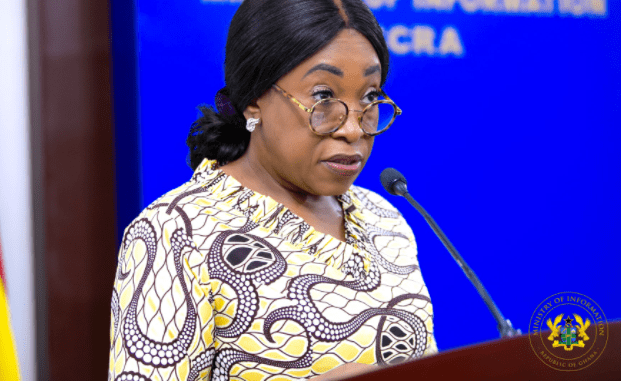Ghana’s Minister of Foreign Affairs and Regional Integration, Shirley Ayorkor Botchway, has noted that African countries cannot realize the full benefits of the implementation of the African Continental Free Trade Area (AfCFTA) initiative if terrorism and insecurity persist on the continent.
She said this during a press conference in Accra on Monday February 7.
“We cannot realize the benefit of free trade under AfCFTA if terrorists’ violence, insecurity and political upheaval disrupt trade and industrialisation agenda that should support increased trade and employment in our countries,” she said.
Meanwhile, the AfCFTA has identified additional 850 new products for which rules of origin have been agreed pending the approval by Heads of Stars, for trade to commence.
Rules of origin are the criteria needed to determine the national source of a product. Their importance is derived from the fact that duties and restrictions in several cases depend upon the source of imports.
Before the identification of the 850 new products, the AFCFTA had already agreed on 3,800, making 88per cent of the number of targeted products to be traded among member countries on the continent.
Ebrahim Patel ,South Africa’s Minister of Trade and Chair of the Council of Ministers of Trade- AU Member States described this as breakthrough.
At an AfCFTA media briefing for the 8th Meeting of the Council of Ministers, on Saturday January 29, Mr Patel said “In 2019 when the African heads of states met we had already done considerable work.
“At the time we had agreed in order of over 3800 products for which there were also origin. But there were still a number of ones that have not been agreed.
“So over the last two years, the negotiators, the Ministers, have been meeting frequently.
“You can see 8 meetings of ministers and it is concluded now with a package, a package that has 88 per cent of more products on the tariff books across the continent for which we have agreed rules of origin.
“In other words we now have defined for each of them what constitutes the minimum African content for their products to be traded between countries on the continent on the basis of preferences that is the breakthrough.
“I am happy to say that this two-year period of work that we have undertaken in 2020 and 2021 identified more than 850additional products for which rules of origin have been agreed. This package now goes to heads of states and if they endorse it that package becomes the basis for trade to commence.”
For his part, Secretary-General of the Secretariat of the African Continental Free Trade Area, Wamkele Mene, said a new payment system, Pan African Payments and Settlements has been launched to assist member states to trade using a single currency.
This, he said will deal with the challenges of using third currency to trade.
“You will know that on the 13th of January, here in Accra, we launched the Pan African Payments and Settlements System which will enable us to now start trading among ourselves as African countries using a local currency rather than a third currency.
“We have 42 currencies in Africa. The cost of currency convertibility according our studies, is in excess of 5billion dollars a year and this is not only monetary cost but also it is a cost of lack of competitiveness constrains in terms of being competitive, access to affordable currency exchange facilities, lack of affordability of small medium enterprises who want to trade across borders, across regions.
“So now with the Pan African Payment system which was recognised by the Ministers yesterday as a tool of implementation, we now will be able to, as Africans, trade using local currency. When you switch onto the platform you will be able to trade with somebody in Kenya, you will trade using Ghanaian cedi, they will trade using Kenyan shilling.”
The African Continental Free Trade Area (AfCFTA) is a free trade area founded in 2018, with trade commencing as of 1 January 2021.
It was created by the African Continental Free Trade Agreement among 54 of the 55 African Union nations.
The free-trade area is the largest in the world in terms of the number of participating countries since the formation of the World Trade Organization.
Accra, Ghana serves as the Secretariat of AfCFTA and was commissioned and handed over to the AU by the President of Ghana Nana Addo Dankwa Akufo-Addo on August 17, 2020 in Accra.
The agreement was brokered by the African Union (AU) and was signed on by 44 of its 55 member states in Kigali, Rwanda on March 21, 2018.
The agreement initially requires members to remove tariffs from 90% of goods, allowing free access to commodities, goods, and services across the continent.
The United Nations Economic Commission for Africa estimates that the agreement will boost intra-African trade by 52 percent by 2022. The proposal was set to come into force 30 days after ratification by 22 of the signatory states.
On April 2, 2019, The Gambia became the 22nd state to ratify the agreement, and on April 29 the Saharawi Republic made the 22nd deposit of instruments of ratification; the agreement went into force on May 30 and entered its operational phase following a summit on July 7, 2019.
The general objectives of the agreement are to: create a single market, deepening the economic integration of the continent, establish a liberalised market through multiple rounds of negotiations, aid the movement of capital and people, facilitating investment, move towards the establishment of a future continental customs union, achieve sustainable and inclusive socioeconomic development, gender equality and structural transformations within member states, enhance competitiveness of member states within Africa and in the global market, encourage industrial development through diversification and regional value chain development, agricultural development and food security, resolve challenges of multiple and overlapping memberships.
By Laud Nartey|3news.com|Ghana


